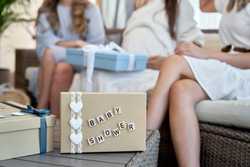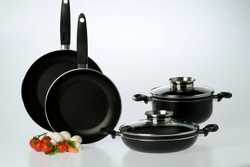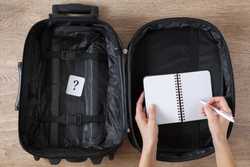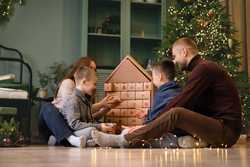- Material: Plastic
- Batteries required: No
- Age range: 0+ months
- Price at time of publish: $19.99
Best Baby Toys For 6-12 Months, According To Play Experts
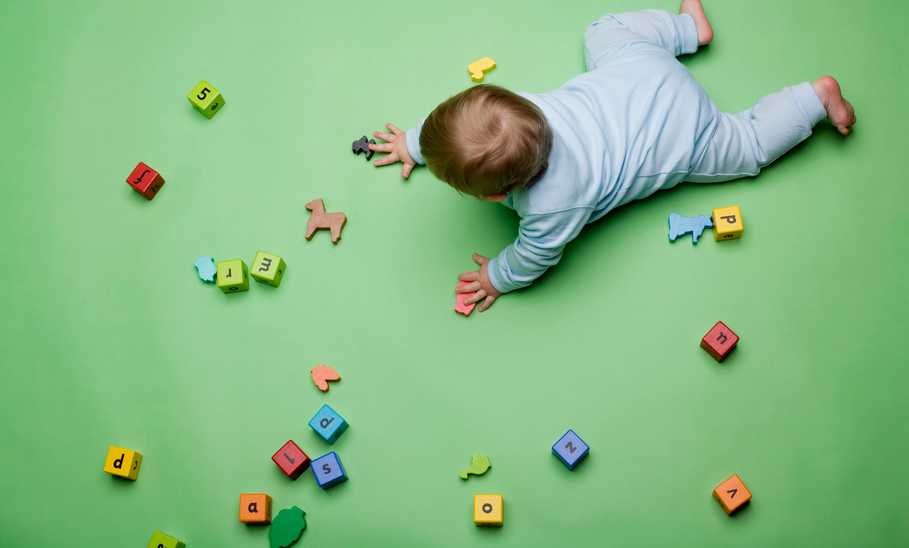
Our evaluations and opinions are not influenced by our advertising relationships, but we may earn a commission from our partners’ links. This content is created by TIME Stamped, under TIME’s direction and produced in accordance with TIME’s editorial guidelines and overseen by TIME’s editorial staff. Learn more about it.
There’s so much pressure on parents to choose the right toys for their children. Are loud, light-up toys okay? Should you only be buying wooden and non-toxic? With an overwhelming amount of options out there, it can be hard to narrow down what kids truly need at every age and stage, as well as what’s actually worth purchasing.
“During this age range (6-12 months), babies are developing their fine motor skills such as the ability to grasp, hold, and manipulate objects,” says Michelle Mintz, M.S., CCC-SLP, an early childhood development expert and creator of Baby Blooming Moments. “They’re also developing their gross motor skills such as learning to sit up, crawl, stand, and possibly start walking.”
Of course, they’re putting everything in their mouths, exploring different textures, sounds, and cause and effect, and beginning to babble, too. I spoke with multiple play experts to discover the best baby toys for 6-12 months to help support their development. Read on to shop their personal favorites, as well as my own as a seasoned mom of three young children aged six and under.

They’ll have a ball exploring, touching, and even teething on these popular sensory balls. Available in a set of six, “these balls of different shapes, textures, and colors allow for fun sensorimotor play and can facilitate fun bonding with caregivers, as babies are now much more curious of materials and seeking playful engagement,” says licensed clinical social worker and play expert Jennifer Rothman. “They can explore these balls in so many ways: Reaching, holding, rolling, mouthing, banging, dropping, hiding and finding, visually tracking where it goes, crawling for it, and so much more.”
These colorful sensory balls are super fun for babies and also help boost sensory and motor development.

If you’re looking for stroller toys for zero to six months that can easily take you through the first year, I highly recommend this versatile activity arch for on the go. There are black and white and colorful butterflies hanging to stimulate newborns’ visual senses. For babies three months and up, there’s a rattling beads maze, a bunny with crinkling ears and beads, and a double-sided spinning mirror to practice motor skills and develop hand-eye coordination. It easily attaches to car seats, strollers, and bouncers to entertain baby when you’re out and about or just have to get things done around the house. I like that it’s height adjustable, so you can reposition as baby grows.
This entertaining activity arch is super versatile, attaching to strollers, prams, bouncers, and more to keep them happy when you can’t.

Researching the best baby and toddler toys can be time consuming, but Lovevery does the hard work for you. “These kits are selected by child development experts who know how best to support hearty brain growth during the early, formative years,” says Bowen-Poole. Each kit is tailored to your baby’s age and stage of development and includes engaging, gorgeous, and high-quality modern toys (many wooden) that you won’t mind adorning your playroom. The best part? When you sign up for a subscription, new toys automatically arrive at your door every two (or three) months to entertain your babe.
Lovevery is worth the splurge for beautiful, sustainable toys made to support brain development and delivered direct to your door bimonthly.

If there’s one thing all babies and toddlers are obsessed with, it’s bubbles. Mintz highly recommends what she calls “sticky bubbles.” “They are fun, unique bubbles that don't pop and are great for sensory stimulation and increasing attention,” she says. Grab a pack of these to engage and entertain your babe on a nice day. They’re small enough to fit in your diaper bag, stroller caddy or even your pocket for on the go, too.
These touchable bubbles are a blast for babies, keeping them busy and providing lots of sensory stimulation.
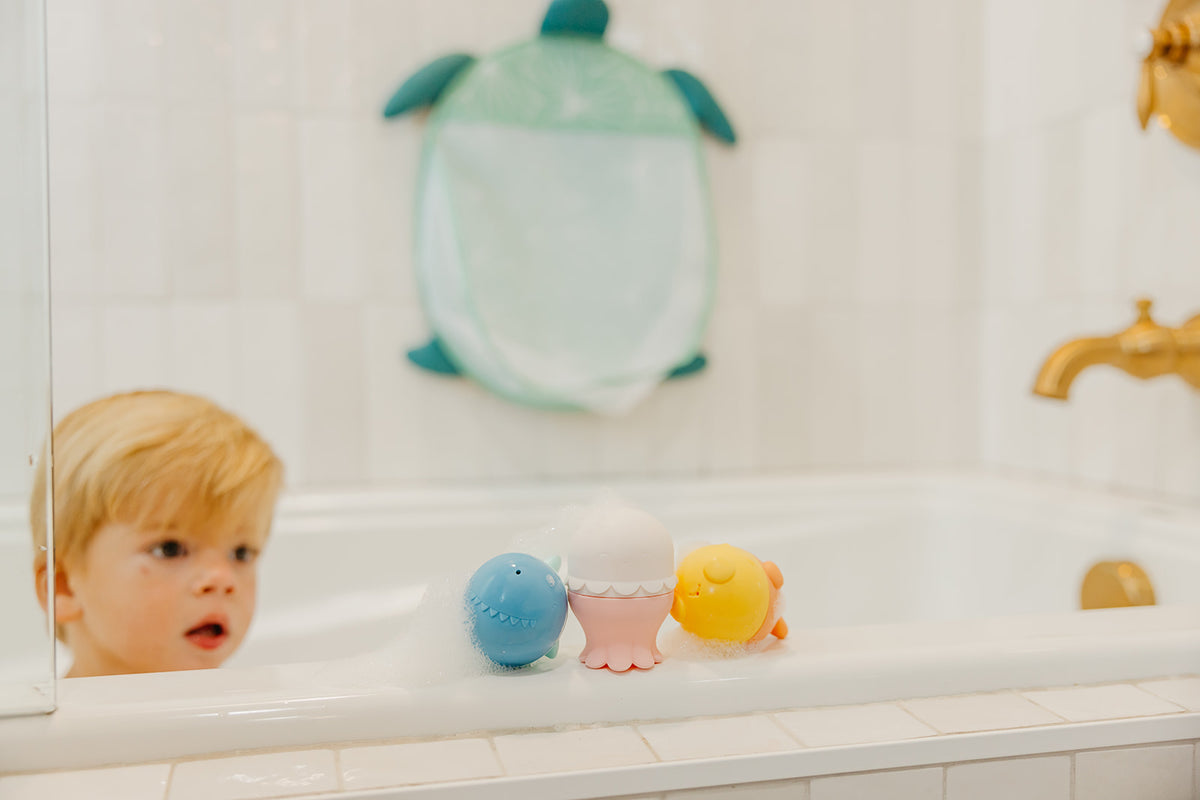
Bathtime is the ultimate sensory experience for babies. Turn up the fun in the tub with these adorable mix-and-match silicone squirties. They pull apart completely, allowing littles to work on hand-eye coordination and strengthen fine motor skills. More importantly, cleaning them is a breeze for parents. Each character has a different spray feature to excite babies and let them explore cause and effect.
These soft silicone bath toys pull apart for easy cleaning, and are interchangeable to mix up the fun.

This colorful and interactive baby walker was a staple in our house and beloved by all three of my babies. It has over 90,000 positive reviews on Amazon and an impressive 4.8-star rating, making it a popular pick among parents everywhere. It provides hours of entertainment (seriously!) whether they’re pushing all the buttons or pushing it around the house.
Key features include a piano, multiple shape sorters, light-up buttons, spinning gears, a pretend telephone, and over 70 songs, sound effects, and fun phrases. It’s perfect for working on fine motor skills, sensory stimulation, and getting them up and moving. The activity panel can also be removed for fun floor play when they’re still sitting, and the wheels have two speeds for safety purposes and to accommodate different skill levels.
This bright, interactive Learning Walker gets kids moving, holds their attention well, and offers so many fun and educational ways to play.

These squeezable silicone blocks come in the cutest modern colors with numbers, animals, and shapes embossed on each side to take their learning to the next level. They’re textured for sensory development and double as a teething toy. Littles will enjoy stacking them and, let’s be honest, throwing them. They’re super soft, so they won’t hurt when they knock them over or sling them across the room.
These soft sensory blocks make a great (and safe!) first block set for tiny teethers.
Mintz loves this version of The Wheels on the Bus. “It’s interactive and there is so much to talk about, describe, and label in this book, helping with vocabulary and language development,” she says. It’s also a nostalgic book (and song!) for parents who will enjoy sharing the story with their own children. “Our little one is obsessed with the moving parts of this book,” writes one Amazon reviewer. “Great take on a classic and makes reading it fun and interactive.”
This classic, interactive board book will quickly become their new bedtime favorite, with lots for littles to do on each page.

Work on hand-eye coordination, color recognition, fine motor skills, and so much more with this plush and popular tissue box sensory toy. Inside are 15 textured tissue fabrics, including tulle, shear, and crinkly corduroy cloths, to grab, pull, explore, and excite their senses. The colorful tissues are also perfect to play peek-a-boo with, toss in the air, catch, or whatever games they dream up. The box itself is made from non-toxic materials and gently weighted too, making it easier for babies to pull the tissues out.
This plush, sensory tissue box is an excellent investment for babies who love the real thing.

This top-rated, heirloom-quality activity cube was one of the most played with toys in our home during the baby and toddler stage. There’s so much to do on each side, allowing little ones to practice fine motor skills and explore cause and effect. They can push and pull beads, play peek-a-boo with farm animals, spin the spinners or watch the animals go down the zig-zag race tracks. The wood quality is excellent too, making it perfect for passing down to younger siblings or family members.
This heirloom-quality activity cube is full of engaging activities without loud noises or light-up features that can be overstimulating.

My oldest has had his Jellycat bunny since he was a baby and still sleeps with it every night. They are supremely soft, made for cuddling, and the perfect first stuffy for little ones. As Mintz points out, “beginning to understand social cues and forming attachments is important. Dolls, stuffed animals, and toys that encourage imitation play can be helpful.” This is one of my personal go-to baby shower gifts for new parents. It’s lightweight enough for littles to hold and carry, and a toy that can be enjoyed, snuggled, and played with long past the baby stage.
This Jellycat bunny is luxuriously soft and treasured (and snuggled) by parents and children alike.

Mirror, mirror on the wall, who’s the cutest baby of them all? This portable and collapsible mirror is packed with so many benefits for babies. “Looking together in the mirror helps your baby learn to imitate facial expressions, which then helps them learn to imitate sounds and eventually words,” says Mintz. “It's a great way to connect and bond with your baby.” This shatterproof mirror also doubles as a fun sensory toy, with textured beads, balls, and handles for baby to explore.
While pricey, this popular sensory mirror offers a slew of developmental benefits, encouraging babies to crawl and imitate facial expressions and sounds.

“This is wonderful for babies, as it’s a toy and teether all in one,” says Bowen-Poole. Each piece is made of BPA-free, non-toxic silicone that’s super grippy and small enough for small hands to easily pick up, grasp, and play with. When your baby isn’t putting each piece into their mouth to teeth on, they’ll love exercising their hand-eye coordination and learning colors as they stack. As a mom myself, I love how beautifully made and aesthetically pleasing this toy is.
This modern stacking toy doubles as a teether and is made of BPA-free, non-toxic silicone. Plus, it’s so pretty!
To choose the best baby toys for six to 12 months, I spoke with play experts, including a playroom designer, an early childhood development expert, and two certified play experts, who are knowledgeable regarding the types of toys that are beneficial, engaging, and entertaining for this age group.
I also used my own experience as a parenting commerce writer and seasoned mom of three. I have a one-year old myself, and I’ve tried tons of toys over the past seven years. I included personal faves of my own and my children, as well as favorites of the experts I interviewed. I also looked at product reviews and only included toys with excellent ratings.
“Playing with the right toys can help a child's development between six and 12 months by improving their motor skills, stimulating their senses, enhancing problem-solving abilities, boosting language development, and supporting emotional and social growth,” says Mintz. When selecting toys to engage and entertain your little one, here are some important things to keep in mind.
Sue Warfield, president of ASTRA and certified play expert, advises parents to steer clear of toys with small, loose parts, “as all things go into the mouth at this age.” Mintz echoes this concern. “Avoid toys with small parts that can be choking hazards, toys with sharp edges, and those made from toxic materials. We want sturdy toys that won't break into little pieces,” she says.
“Checking age grade on the package is important,” says Warfield. In this case, you want to look for toys recommended for children ages six to 12 months. These toys are safe for your baby to play with, and developmentally appropriate, as well.
Karri Bowen-Poole, founder of Smart Playrooms, suggests looking for toys that engage the senses, such as touch, sight, and sound. Sensory toys, such as balls in a variety of sizes, shapes, colors, and textures are a popular one for this age group.
Many six- to12-month-olds are already on the move! To improve motor skills, “look for toys that encourage reaching, grasping, crawling, and moving, like soft balls, mats, and push or walking toys,” recommends Bowen-Poole. Toys “that promote cause and effect, problem solving, and spatial awareness,” are great for cognitive development, while toys that talk or encourage conversations or labeling can help develop language skills, she adds.
No two babies are alike: What one child prefers, another couldn’t care less about. “Allow babies to take the lead in play and follow their interests and cues,” says Bowen-Poole. “Observe their preferences, reactions, and behaviors to understand what types of play activities engage and stimulate them the most.” And if you’re looking to deepen your connection with your baby, Mintz says, “finding toys that encourage parent interaction such as books, rolling balls, and bubbles help foster early attachments.”
Below, you’ll find our selections, and remember, if you find this guide useful, you may also be interested in our guides to the best toys for 0-6 months, the best toddler toys, and the best shower gifts.
The information presented here is created by TIME Stamped and overseen by TIME editorial staff. To learn more, see our About Us page.
